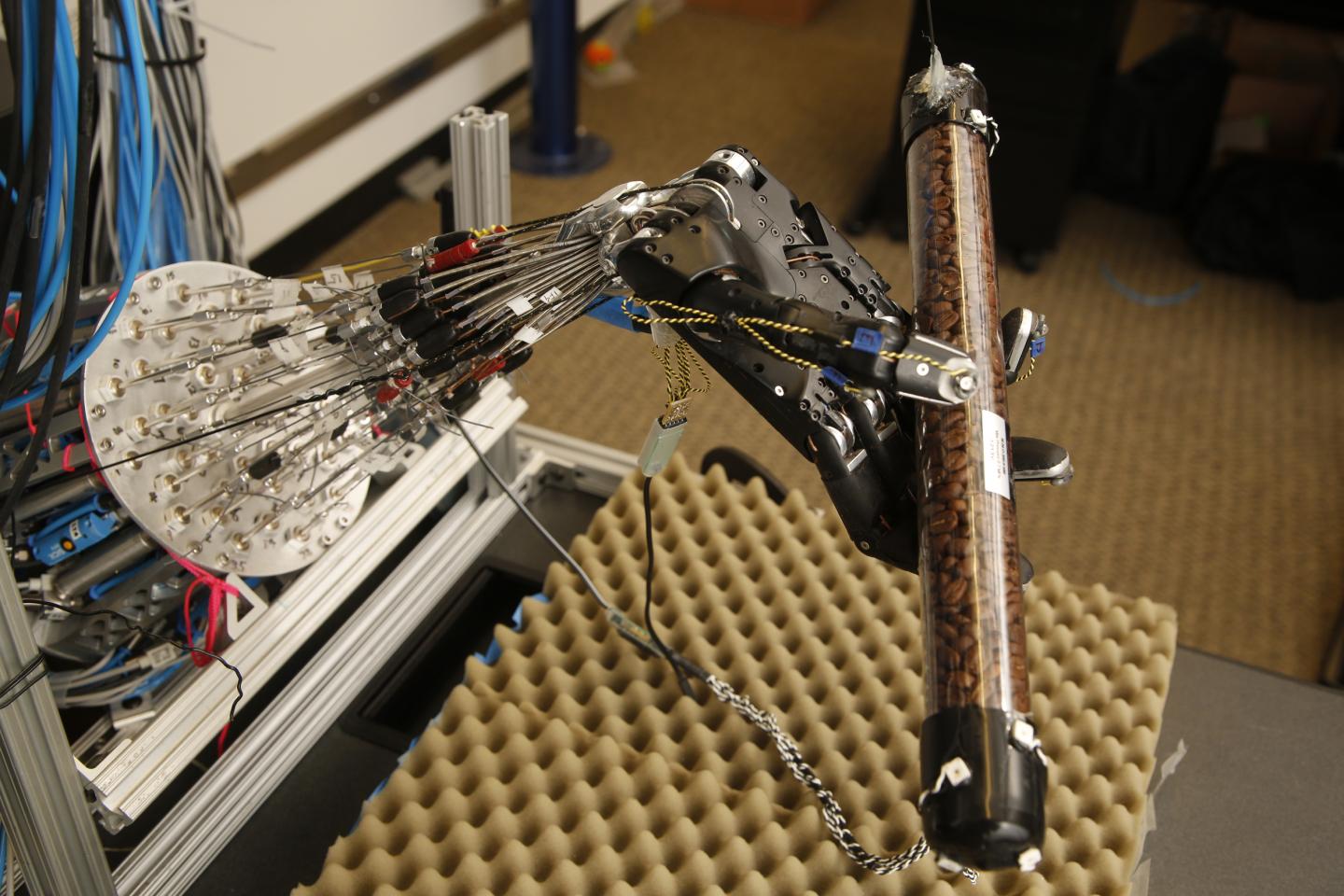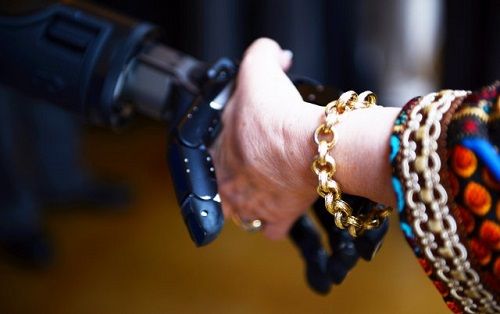Imagine this: you accidentally swallowed a battery (!), and to get it out, you need to take a pill that turns into a robot. Researchers from MIT, the University of Sheffield and the Tokyo Institute of Technology have developed a new kind of origami robot that transforms into a microsurgeon inside your stomach. They squished the accordion-like robot made of dried pig intestine inside a pill, which the stomach acid dissolves. A magnet embedded in the middle allows you or a medical practitioner to control the microsurgeon from the outside using another magnet. It also picks up the battery or other objects stuck inside your stomach.
This new design is a follow up to an older origami robot also developed by a team headed by MIT CSAIL director Daniela Rus. It has a completely different design and propels itself by using its corners that can stick to the stomach’s surface. The team decided to focus on battery retrieval, because people swallow 3,500 button batteries in the US alone. While they can be digested normally, they sometimes burn people’s stomach and esophagus linings. This robot can easily fish them out of one’s organs before that happens. Besides origami surgeons, Rus-led teams created a plethora of other cool stuff in the past, including robots that can assemble themselves in the oven.





